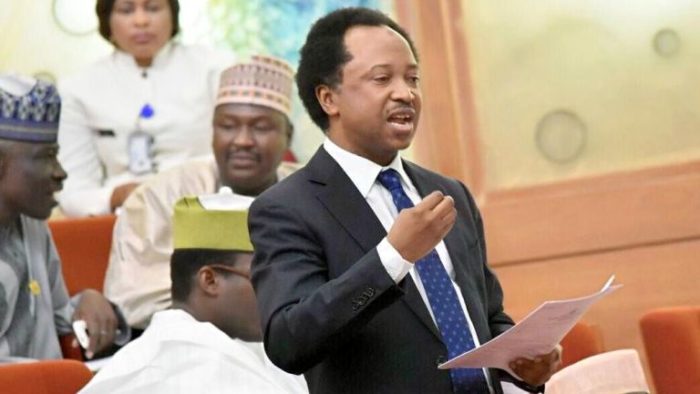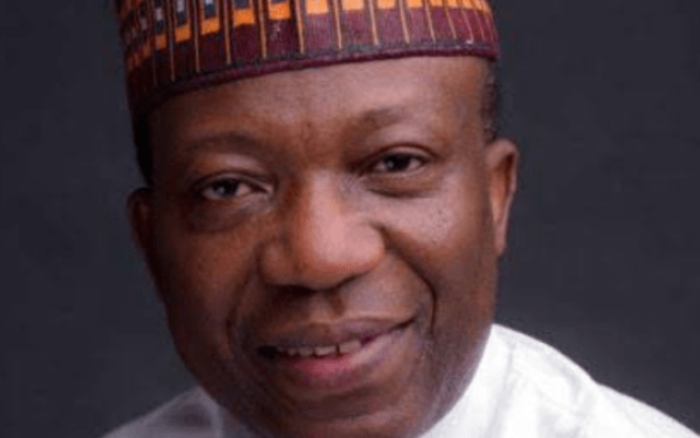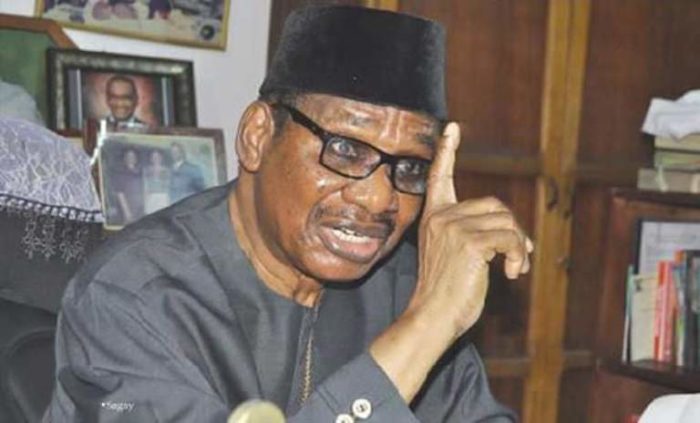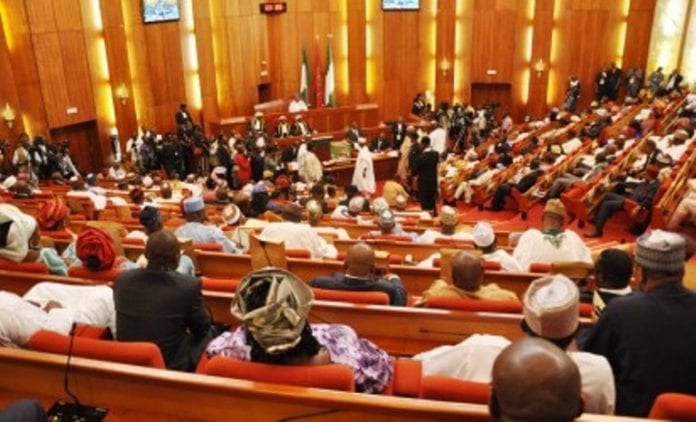Politics in Nigeria is arguably the most lucrative field you can think of. All the elected members of the executive and legislative arms of government earn monthly paychecks in millions. Taking the Nigerian senators as a case study, these lawmakers receive N750, 000 as basic monthly pay in addition to N13.5 million which is described as running cost; while this particular fund is meant for the senator to carry out projects, it can easily disappear without any project executed to justify how the money went.
Another aspect of the Nigerian senators’ remunerations that has become a burning issue among the populace is what they described as constituency funds which comes to an astounding N200 million disbursed to government agencies yearly for the senators to carry out projects in the constituencies. Besides, we are yet to factor in the hefty allowances of these senators, the figures keep mounting.
Senator Shehu Sani Spilled The Beans On The Remuneration of Nigerian Senators

For many years, the exact amount paid to Nigerian senators as salary has been treated as top secret by the authorities who have never deemed it necessary for the media and the general public to know. This was the situation for years until Senator Shehu Sani – the honorable member representing Kaduna Central and an All Progressive Congress Party loyalist changed the status quo.
Mr. Sani was in an interview session with TheNews when he was quizzed about the senator’s income and in his response, the honorable member left no stones unturned in revealing what has been hidden from the public for years. According to the honorable, each serving senator of the federal republic of Nigeria receives a monthly income of N750,000. This money comes to N9 million annually which is excluding the allowances and running costs.
Running Cost For Nigerian Senators
While blowing the whistle on the senator’s salaries, Senator Shehu also threw light on what he called “Running Cost for Senators”. Apart from the N750, 000 monthly remunerations, the senators are given the sum of N13.5 million every month as running cost. Important to note that this running cost excludes the basic monthly pay, neither does it have anything to do with other allowances received by the members.
Answering follow-up questions on the issue, Senator Shehu said the running cost does not come with any specifics regarding what the money will be used for. However, the money is disbursed with the expectation that each senator will carry out a project with it and bring proof of expenses in the form of receipts. While the expenditure of the running cost is expected to be receipted, the basic monthly payment can be spent without accountability. With this revelation, the monthly take-home of a senator of the Federal Republic of Nigeria is brought to the total sum of N14.25 million nairas. Besides, only the N13.5 million running cost will come to a total of N162.96 million annually.
Allowances For Nigerian Senators
With that said about Nigerian senator’s monthly pay and running cost, let’s take a critical look at their allowances; Remember, these allowances have nothing to do with the basic salaries and the running costs. Below is a comprehensive list of the allowances a senator receives in Nigeria;
- Furniture – N7.45m
- Newspaper – N1.24m
- Wardrobe – N0.62m
- Recess – N0.25m
- House Maintenance (accommodation) – N4.97m
- Utility – N0.83m
- Domestic Staff – N1.86m
- Entertainment – N0.83m
- Personal Assistance – N0.62m
- Vehicle maintenance and fueling – N1.86m
- Leave allowance – N0.25m
- Motor vehicle Allowance – N9.94m
- Severance gratuity – N7.43m
They also get the estacode, hardship, constituency, and duty tour allowances but the exact amounts for each of them are not known
One important fact that must be noted about the Nigerian senator’s allowances is that after collecting all these hefty sums on an annual or monthly basis, these honorable members will still be compensated after they have completed each four-year tenor; the sum they receive is N24,000,000 which is expected to cover a whole lot of things like severance, vehicle loan, furniture, and accommodation allowances.
Constituency Projects Funds for The Federal Lawmakers
In his revelations, Honorable Sani also mentioned the highly controversial constituency projects for federal lawmakers. According to him, disbursing the constituency project fund is done zone by zone and almost all the senators will get constituency funds totaling about N200 million annually.
However, this money is not given to them in cash, rather, the honorable member will be informed when the funds are made available to any of the government agencies. It is now left for the senator to justify the disbursement by creating and submitting projects that are commensurate with the available funds. Once the agency gets the senator’s submissions on what the funds should be used for, they will move into action to accomplish the projects for the senator.
Mr. Sani Completely Disagrees With The Constituency Projects Funds
While talking about the senator’s salaries and allowances, Mr. Sani spoke against the constituency projects funds saying that the process of executing these projects has always been fraught with fraud. The corruption he said, comes when the stated projects are not executed and the money disappears. Shehu advocated for a situation where constituency projects and running costs are taken away from the senator and they are left with just their salaries. Ideally, senators and house of rep members shouldn’t have any hand in constituency projects, Shehu said. This is totally the duty of the executive arm of government.
Speaking on the core duties of Senators and House of Reps members, the honorable representing Kaduna Central said people who have been elected into the house should focus only on Lawmaking, raising bills, motions, including the performance of oversight functions. Condemning the current situation, Shehu expressed how sad it is that our society is structured in such a way that people can no longer differentiate between the executive and the legislative arm of government.
According to the honorable member, people will come to senators expecting them to undertake projects like construction of roads, health facilities, educational facilities, boreholes, including giving them cash and assisting them in paying school fees. Sani said, if people can desist from making such requests from senators, then, the allowances won’t be needed. However, it is funny that senators who don’t embark on projects in their constituency but are active in making laws will not be appreciated by the people he is meant to represent. It is so sad that our electorates don’t just understand how things ought to work.
With all these revelations, Mr. Sani has earned applause from the Nigerian populace since he is the first lawmaker to bare the facts about senators’ salaries since the citizens clamored for transparency in that regard. With Sani’s revelations, people started taking the content of subsequent budgets with a pinch of salt. For instance, when the 2017 budget for NASS was made public, the controversial office running cost didn’t show under any subheadings; this is a good indication that they hide these funds under other subheadings.
Sen. Ajibola Bashiru Came to the Defense of Nigerian Senators
After Senator Shehu bared the bones on the hefty take-home paycheck of Nigerian senators, the resultant uproar was quite deafening, bringing the likes of Sen. Ajibola Bashiru to the rescue. Trying to salvage the exposure on the senator’s salary and allowances, the member representing Osun Central (All Progressive Alliance member) stated that the take-home of a senator is basically N700,000 and out of this sum, a monthly deduction will be made in a payback of their car loan of N8 million. Senator Bashiru was on the sideline of an NUJ (Correspondents Chapel of the Kwara Council) organized program when he made this defensive comment.
Going further, the senator derided those accusing senators of receiving jumbo paychecks, calling them out to come and contest and partake in the so-called jumbo pay. Bashiru also narrated how a senator is entitled to six aids and the Nigerian National Assembly Service Commission is in charge of paying their salaries. These salaries he said are paid directly into the accounts of the aids and thus, shouldn’t be counted as part of a senator’s salaries. The senator also said other entitlements like their Eastacode and their travel allowances shouldn’t be counted as part of their salaries.
The Salaries, Allowances, Running Costs, And Constituency Project Funds Of Senators At A Glance
- Monthly basic salary: N750, 000 multiplied by 12 = N9,000,000 per annum
- Running allowance: N13.5m monthly multiplied 12 = N163,000,000
- Constituency projects: N200,000,000 per annum
When you add these sums, it will come up to N372,000,000 per annum. What this means, in conclusion, is that these senators are earning above N1 million each day; this also includes Sundays when they will be engaged elsewhere (churches or mosques).
Nigerians React To The Outrageous Paycheck Of Senators
As expected, Senator Shehu’s revelation sparked an uproar among the Nigerian populace who expressed disappointment in the Federal Government for not only squandering the country’s wealth in paying these exorbitant salaries but also for keeping it hidden from the public for years.
Before long, senior citizens of the country started airing their views on the lawmaker’s pay packages, among those who spoke out were Prof. Abubakar Suleiman – ex-Minister of National Planning, Dr. Junaid Mohammed – House of Rep’s ex-member, Prof. Itse Sagay – Chairman of PACAC (Presidential Advisory Committee on Anti-Corruption), Chief Chekwas Okorie – National Chairman of UPP (United Progressive Party) and former presidential candidate, and Mr. Giwa Victor – national coordinator cum Advocate for Peoples Justice.
Prof. Abubakar Suleiman’s Submissions

Decrying the huge emoluments given to lawmakers, Suleiman called on the pertinent government agencies to expedite action on reducing the remunerations and ensure it is brought to tandem with what he referred to as the current realities.
Agreeing that the National Assembly is not in a position to decide on what their income will be, Suleiman said fairness needs to be applied, and taking the current situation of Nigeria into consideration, House of Reps members and senators should collaborate with the executive in reviewing their income downwards.
Speaking further, Suleiman also said they should factor in the price of oil that has crashed in the international market. His exact words were “That money is just too outrageous, too killing, and makes no sense”. Comparing it to his time in office as a minister, Suleiman said their monthly take-home was not up to N1 million, including housing allowance. If ministers didn’t earn that much, then lawmakers should not think of earning such. In conclusion, the former minister said something should be done and must be done urgently.
Dr. Junaid Mohammed Made His Own Contributions

On his own part, Dr. Junaid Mohammed was rather vociferous with his opinion about the whole lawmakers’ remuneration issues. Describing the NASS members as a bunch of thieves and rogues who have completely failed in representing the Nigerian citizens, Mohammed described them as people who are only interested in representing themselves and taking care of their interests to the detriment of the people. He said the NASS should be held directly responsible if Nigeria shows signs of becoming a failed state.
The outrageous amount the lawmakers pocket in the name of serving in NASS only points to the fact that they are scammers, Mohammed said. He also mentioned that this kind of nonsense called legislative project is happening for the first time since 1999. Comparing the Nigerian lawmakers to other countries, the former House of Reps member said it has never happened anywhere else in the world; lawmakers have never embarked on constituency projects in other countries as it is the duty of the executive.
Prof. Itse Sagay Also Weighed in on the Matter

Making his won contributions, Prof. Itse Sagay stated that the lawmakers’ income is completely out of tune with Nigeria’s current economic reality; these NASS members shouldn’t continue feeding fat at the common man’s expense. Claiming to be the first to speak out about the outrageous remunerations, Sagay said the lawmakers got extremely angry with him for pointing it out and while they made all sorts of comments about his observations, they still knew he was right.
Describing the lawmakers as people who overreacted and refused to show remorse or be apologetic for what they have been doing wrong, the PACAC chairman reiterated what others have already said; the remunerations were completely out of tune with the country’s current economic reality.
The lawmakers he said shouldn’t be allowed to continue consuming our commonwealth while others cannot even get the tiniest morsel to survive on. He concluded by describing the whole thing as unsustainable and something needs to be done about it as it cannot continue in this manner. What members of the National Assembly take home exceeds the country’s minimum wage by a whopping 1,666 times. Besides, the worst part is that their productivity comes to almost nil.
Comparing the Nigerian Senators’ Salaries To Senators From Other Countries
While Nigerian senators go home with hefty paychecks, their contemporaries in other African countries are not earning as much. For the West African country, Ghana, parliamentarians earn a total of 2,000 Ghana cedis monthly, however, they are currently proposing that the salary be increased to $4,500 monthly. According to Charles Hodogbey (representative of the lush riverside district of North Tongu), Ghanaian Parliamentarians exhaust their 2,000 Ghana cedis monthly salary under three days. Speaking further, he stated that Ghanaian Parliamentarians are poorly compensated compared to what is obtainable from neighboring countries like Nigeria.
For South Africa, their MPs receive salaries according to ranks.
- National Council of Province’s chairs and National Assembly speaker received R2,825,470 within the 2019/20 financial year.
. - National Assembly deputy speaker receives R1,977,795 a year.
- The House chair earns R1,882,488 a year.
- Senior MPs, including the chief whip of the majority party, the parliamentary council president/deputy president, leader of the opposition, and the chief whip of the NCOP earn R1,600,467 a year.
- Committee chairs earn R1,495,755 a year.
- Minority party leaders earn R1,346,232 a year.
- Regular MPs earn R1,137,933 a year.
The SA MPS are currently proposing a pay rise but are yet to come to an agreement with President Cyril Ramaphosa.
After the upward review of US senator’s salaries in 2009, they now receive $174,000 per year, the same is applicable to members of the House of representatives. However, this amount does not include their allowances.
